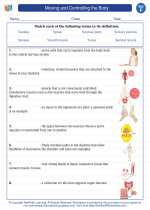Parasites: A Detailed Explanation
Parasites are organisms that live on or inside another organism (the host) and benefit at the host's expense. There are different types of parasites, including protozoa, helminths (worms), and ectoparasites (such as ticks and lice).
Types of Parasites
- Protozoa: These are single-celled organisms that can cause diseases such as malaria, giardiasis, and toxoplasmosis.
- Helminths: These are parasitic worms that include tapeworms, roundworms, and flukes. They can cause diseases such as schistosomiasis and trichinellosis.
- Ectoparasites: These are parasites that live on the outside of the host's body, such as ticks, lice, and fleas.
Life Cycle of Parasites
Parasites have complex life cycles that often involve multiple hosts. For example, the life cycle of the malaria parasite involves both mosquitoes and humans.
Effects of Parasites on Hosts
Parasites can cause a range of health problems in their hosts, including malnutrition, anemia, and organ damage. Some parasites can also transmit infectious diseases.
Preventing and Treating Parasitic Infections
Preventive measures against parasitic infections include practicing good hygiene, avoiding contaminated food and water, and using insect repellent to prevent insect bites. Treatment typically involves medications that target the specific parasite causing the infection.
Parasites Study Guide
Key Concepts
- Definition of parasites and their classification
- Types of parasites: protozoa, helminths, ectoparasites
- Life cycle of parasites and their dependence on hosts
- Effects of parasites on hosts' health
- Preventive measures and treatment of parasitic infections
Study Tips
- Use diagrams and illustrations to understand the life cycles of different parasites
- Research specific examples of parasitic infections and their impact on human health
- Review preventive measures and treatment options for common parasitic diseases
- Discuss the ethical implications of using parasites in medical research and treatment
◂Science Worksheets and Study Guides Sixth Grade. Moving and Controlling the Body
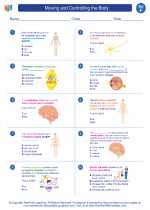
 Worksheet/Answer key
Worksheet/Answer key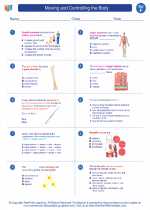
 Worksheet/Answer key
Worksheet/Answer key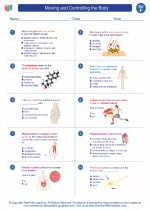
 Vocabulary/Answer key
Vocabulary/Answer key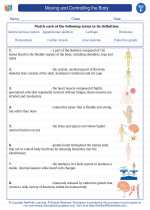
 Vocabulary/Answer key
Vocabulary/Answer key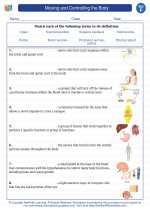
 Vocabulary/Answer key
Vocabulary/Answer key